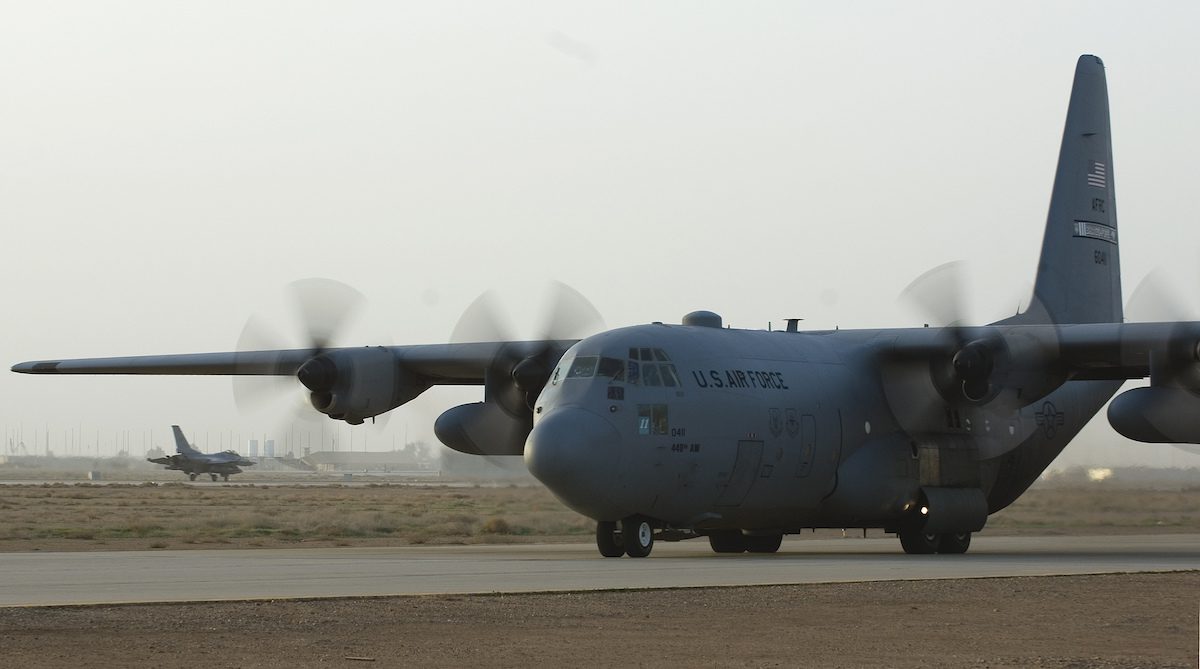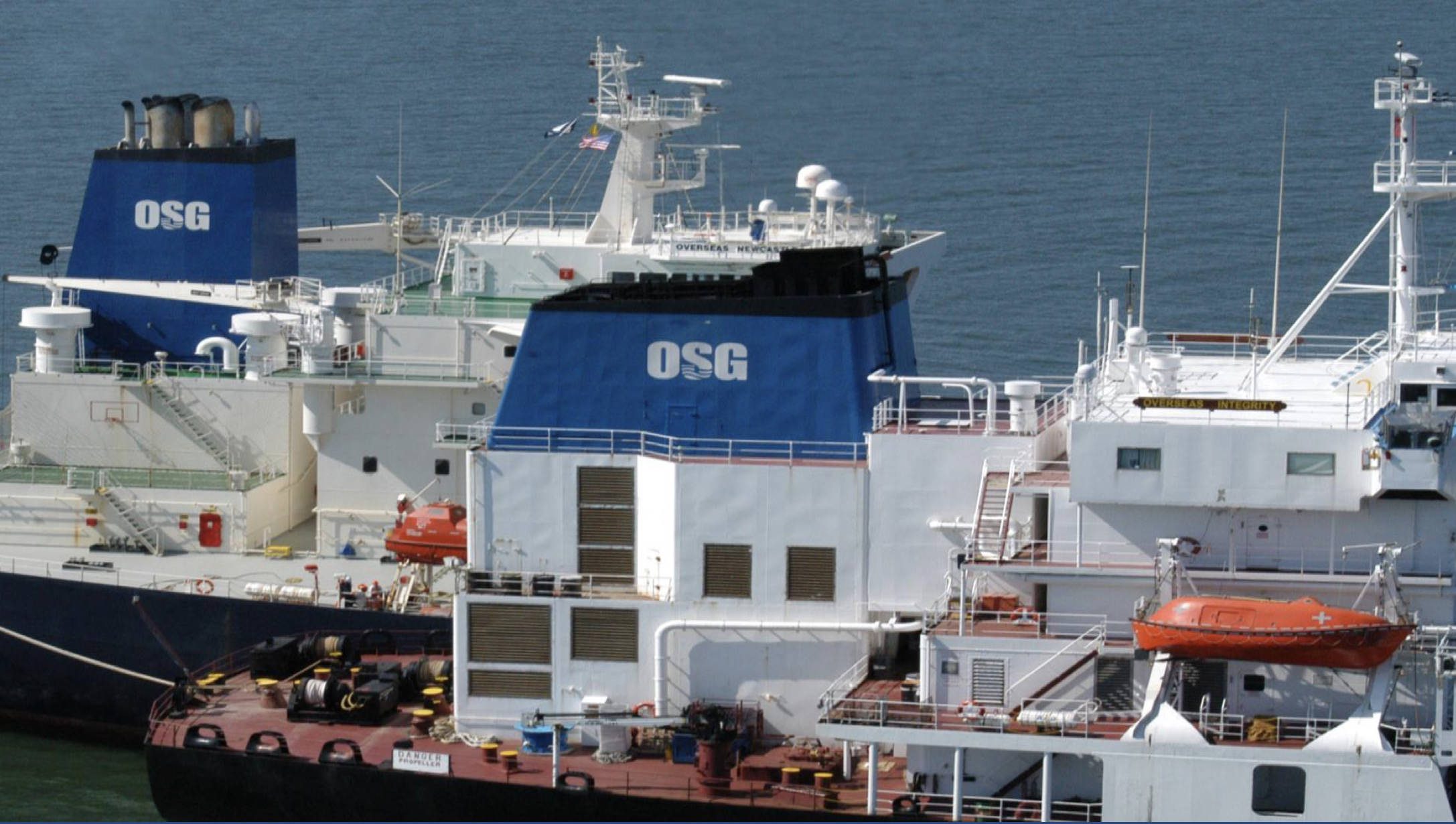A C-130 Hercules from Pope Air Force Base, N.C., taxies down a runway at Joint Base Balad, Iraq, Dec. 24, 2008. U.S. Air Force
By Michael Carr – Joint Base Balad Iraq is surrounded by sand. When you drive out its gates, all you see is sand. Sand blows onto the road, it consumes your horizon in all directions, it fills your nose, ears, and mouth. It jams your weapons. Sand reflects the bright sun, making the wearing of sunglasses a constant necessity. So necessary everyone carries spares.
It occurred to me on my first drive through the desert how similar it was to the open ocean. To some, the open ocean is just miles of water, but to mariners, the open ocean provides clarity and clues to what is occurring miles away. Wind, seas, swells, clouds, current, color, temperature, barometric pressure all provide information on present and future events.
Desert winds, clouds, and temperature provide similar clues to your present and future life. When sandstorms arrive, brought by an increase in northerly winds, related to low-pressure systems crossing Turkey and the Black Sea, you know mortar and insurgent attacks are imminent.
Insurgents drive around in Toyota Hilux pickup trucks, with improvised mortar tubes mounted in their truck’s bed. Insurgents hide inside sandstorms and shoot mortar rounds into Army bases and at convoys. Sandstorms hide their temporary position, making it difficult both to predict where they might be, and finding them after their mortar rounds are fired.
If incoming mortar rounds are detected by defensive base radar a soothing female voice announces over a base’s public address system, “Incoming, Incoming, Incoming, Take Cover, Take Cover, Take Cover.” During your first few weeks on a base, you take this warning seriously, running towards the nearest concrete shelter. But after a month of two of nearly constant mortar attacks, instead of running for cover, you stop and look around, waiting to see where the mortar round will impact. Then you get on with your day.
At sea we watch the weather, gathering data to avoid heavy weather and storms, not mortar attacks. Often with good forecasts and planning we can change course and divert from adverse winds and seas, but sometimes our slow vessel speed and the rapid formation of storms, prevent diversion and we must bear the brunt of nature. Both ocean storms and mortar attacks show that we cannot always avoid unwanted situations.
Preparing for sea and the expanses of a desert are similar. Both efforts are focused on preparations necessary for heading into unforgiving environments, beautiful and yet deadly. Oceans and deserts seek your weaknesses and will exploit those weaknesses, without concern for you. Venture to sea in an unworthy craft and you may sink and drown. Venture into the desert during wartime without water and ammunition, and you most certainly will die.
Mariners train to understand the power and dominance of the oceans. One cannot bluff, fool, intimidate, or ignore the powerful and omnipotent ocean environment, nor can one disregard the power of deserts, which drain you of moisture, and bake you under an unrelenting sun.
For a year I served in Iraq, waking up daily to a bright and powerful sun, heating the endless miles of sand. Each day, as I had done at sea, I looked around, hoping to understand the environment. Examining what I could see, and what I could not see.
I talked with my Navy and Army companions. We discussed daily and seasonal weather. We ensured we hydrated constantly. Posted inside every latrine were color posters showing the level of dehydration based on urine color and aroma. If your urine is not clear, then you must drink more water. I drank gallons of water every day.
After months in the Iraq desert, I came to realize I was sailing on a sea of sand. There were no waves or spray, but the same skills mastered and used as a mariner, are the ones I needed to succeed in the desert. Examine your environment, stay in touch with events, and always be thinking ahead. Be resourceful and take initiative to see problems and fix those problems before they mature into a crisis. Listen to others, and stay calm. And carry on.
T.E. Lawrence, “Lawrence of Arabia”, spent years in the deserts of the Middle East during World War I. He came to understand the unique nature of this environment, and what was necessary to survive and succeed. Lawrence is quoted as saying: “Nine-tenths of tactics are certain, and taught in books: but the irrational tenth is like the kingfisher flashing across the pool…”
And so, whether on a sea of water or a sea of sand, we must learn tactics and strategy, and be like a Kingfisher.
Unlock Exclusive Insights Today!
Join the gCaptain Club for curated content, insider opinions, and vibrant community discussions.

 Join The Club
Join The Club







![A screengrab of a map showing an earthquake Mindanao, Philippines on Dec 2, 2023. (Image: US Geological Survey [USGS])](https://gcaptain.com/wp-content/uploads/2023/12/Screenshot-2023-12-02-at-10.45.17-AM-copy.png.webp)





